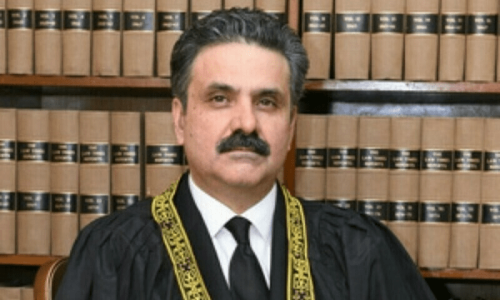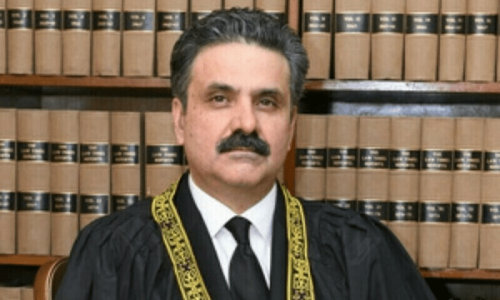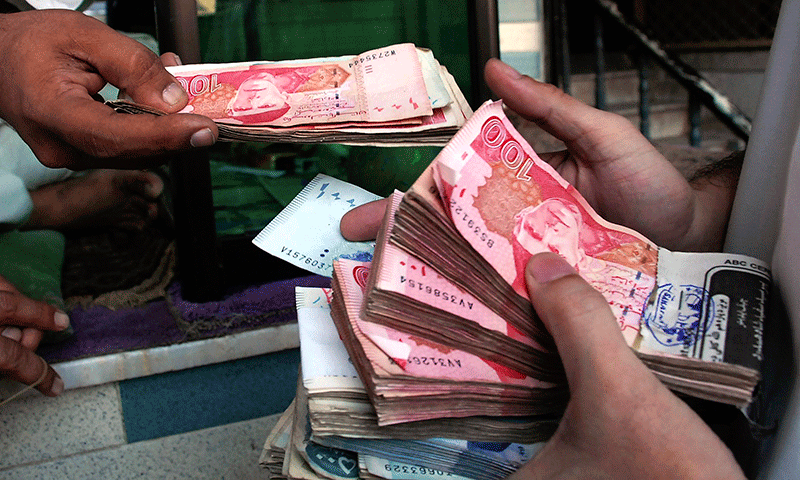ISLAMABAD: A committee of the Judicial Commission of Pakistan (JCP) on Monday finalised draft rules for regulating a mechanism or criteria for assessment, evaluation and fitness for the appointment of judges in the superior judiciary.
A source privy to the development told Dawn that these draft rules would be submitted before the JCP for its final approval on Dec 21. The secretariat of the commission will finalise the draft rules in a couple of days and it is expected to be uploaded on the website of the Supreme Court before the final meeting.
This will provide the bar councils and associations an opportunity to come up with objections if they have any on the draft rules.
The source explained that a special criterion or pro forma had been developed through the draft rules which required the aspirants, both members of the legal fraternity or judges to be elevated in the superior judiciary, to furnish at least a list of 10 judgements based on pleadings as well as explaining whether the jurisprudence developed through these verdicts were still in the field or not.
Draft rules ready to be submitted for commission’s nod when it meets on 21st
“With the advent of the 26th Constitutional Amendment, the entire exercise of elevating judges to the superior judiciary has become jumbled up since the constitutional package has provided the right to every member of the JCP even the political parties to field or propose nominees to be picked as judges of the superior judiciary,” the source said, adding that earlier it was the judges of the commission who selected individuals for their appointment. As a result, everybody seems busy forwarding their CVs or lobbying these days so that their names could be included in the list for consideration by the JCP, he added.
The moment the draft rules are uploaded on the website, another opportunity will be provided to those being nominated or forwarding their briefs to re-submit their antecedents, the source said.
The draft rules also suggested that in case a senior high court judge, his elevation to the Supreme Court or the district and sessions judge for his appointment as the judge of the high court was bypassed during consideration by JCP, the commission has to give cogent reasons for ignoring the senior member of the judiciary.
Emphasis has also been given to the integrity, professionalism, impartiality and credibility of the nominee to become the additional judge of the respective high courts. The rules will empower the commission to call any nominee for a detailed interview in case they had any confusion about the nomination.
Earlier in its Dec 6 meeting, the JCP had suggested Chief Justice of Pakistan (CJP) Yahya Afridi, who is also chairman of the commission, to nominate members for the purpose of constituting the sub-committee. Subsequently, the CJP established Justice Jamal Khan Mandokhail-led sub-committee to draft rules and share them with the commission’s secretariat. The sub-committee’s members included Attorney General for Pakistan (AGP) Mansoor Usman Awan, Senators Barrister Syed Ali Zafar and Farooq Hamid Naek, and senior counsel Akhtar Hussain.
Before the sub-committee’s meeting, senior puisne judge of the Supreme Court Justice Syed Mansoor Ali Shah wrote to Justice Mandokhail, urging him to finalise “clear and transparent rules” for appointing judges to constitutional courts. Justice Shah warned that appointments without such a framework would be unconstitutional and could compromise the judiciary’s independence.
Justice Shah also emphasised the constitutional obligation under Article 175A(4), which requires the JCP to establish procedures and criteria for assessing and appointing judges. He expressed deep concern that the absence of these rules jeopardises the rule of law, democracy, and public confidence in the judiciary.
He also highlighted the risks posed by the 26th Amendment, which allows the executive to have a majority of members in the JCP. He warned that this shift could lead to politically motivated appointments and undermine the ideological commitment of judges to the rule of law.
In response, Justice Mandokhail assured that most of the suggestions forwarded by Justice Shah had already been incorporated into the draft rules on judges’ appointments. He also emphasised that the judiciary should not comprise competent and honest individuals. To achieve this goal, the committee was committed to developing the best mechanism for framing these rules.
Published in Dawn, December 17th, 2024












































